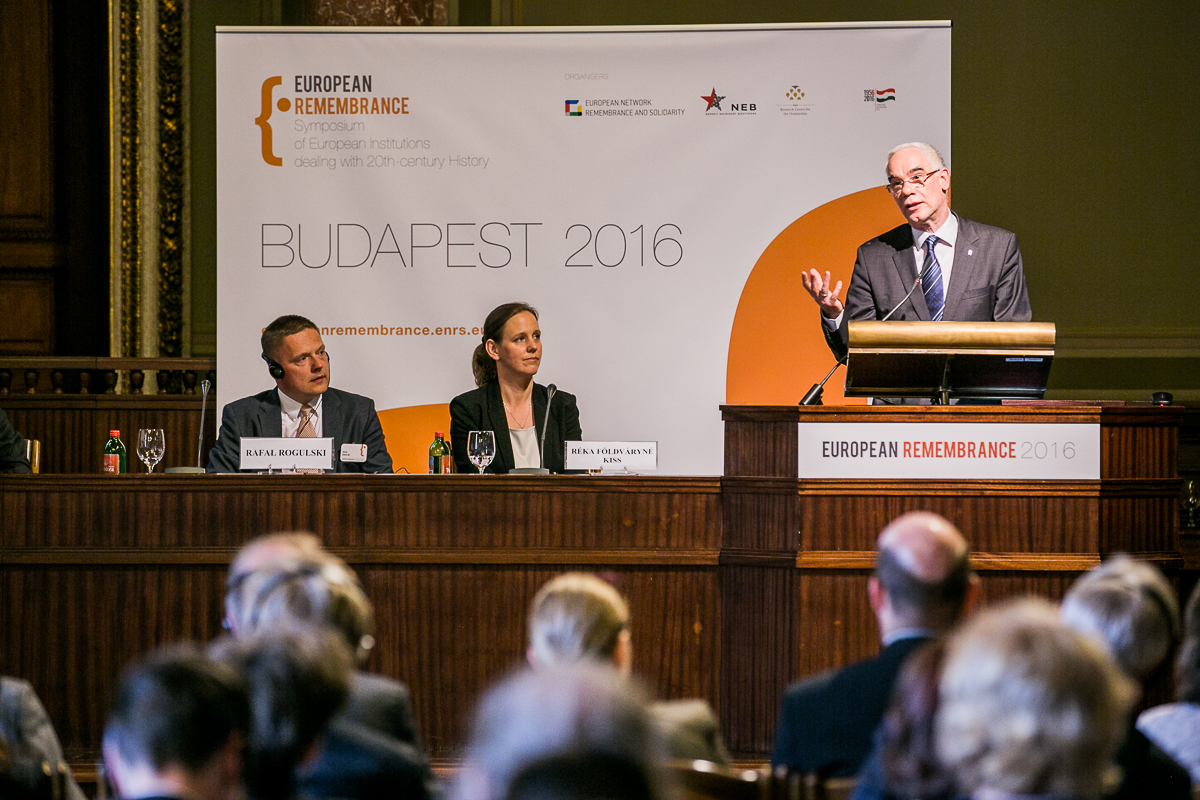1956. Contexts, Impact, Remembrance
‘Searching for freedom derives from remembrance’ – said Mr Zoltán Balog, Minister of Human Resources in Hungary opening the 5th edition of European Remembrance Symposium organised by the European Network Remembrance and Solidarity.
Attended by over 200 representatives of institutions dealing with the history of the 20th century from almost 30 countries, the Symposium is dedicated to the memory of the year 1956, its Hungarian, Polish and European contexts, impact and remembrance.
During the opening ceremony, letters from the Presidents of Hungary and the Republic of Poland were read, addressed to the participants of the event. President of Hungary Mr János Áder stressed that Hungary and Poland jointly regained independence over 25 years ago, and that it would not be possible without the revolution in 1956. President of the Republic of Poland, Mr Andrzej Duda acknowledged efforts of historians and researchers who deal with the 20th century history. Thanks to the events like the European Remembrance Symposium we can remember about values, which Hungarians died for in 1956 and which should be still present in our lives – stated Mr Andrzej Duda.
Professor László Lovász, the President of the Hungarian Academy of Sciences welcomed the guests underlining the fact that the event takes place in a building, which has witnessed most tragic events and turmoil in Hungarian history for almost 150 years.
The opening part of the Symposium was concluded with the speech delivered by Mr László Regéczy-Nagy, the witness of the Hungarian revolution of 1956 who described the atmosphere in 1956 and paraphrased words of Jean-Jacques Rousseau – freedom is a dish easy to eat but hard to digest – said Mr László Regéczy-Nagy.
The opening lecture concentrated on the title of the Symposium – 1956. Contexts, Impact, Remembrance. Dr dr Réka Földváryné Kiss, the President of the Hungarian Committee of National Remembrance and the ENRS Hungarian coordinator, dr Łukasz Kamiński – the President of the Polish Institute of National Remembrance and professor Matthias Weber – director of the Federal Institute for Culture and History of the Germans in Eastern Europe and the ENRS German coordinator, discussed 1956 as a turning point of Eastern European history with strong consequences for future events.
For the next two days historians and representatives of institutions and organisations from almost 30 countries will take part in lectures, discussions and workshops on the perception connected with the year 1956 and its remembrance.
Detailed programme of the symposium is available at www.europeanremembrance.enrs.eu.
A series of European Remembrance symposiums was launched in September 2012 in Gdańsk. Subsequent editions took place in Berlin, Prague and Vienna.
European Network Remembrance and Solidarity
Hungarian Committee of National Remembrance
Research Centre for the Humanities, Hungarian Academy of Sciences
Partners:
Federal Foundation for the Reappraisal of the SED Dictatorship
European Solidarity Centre
